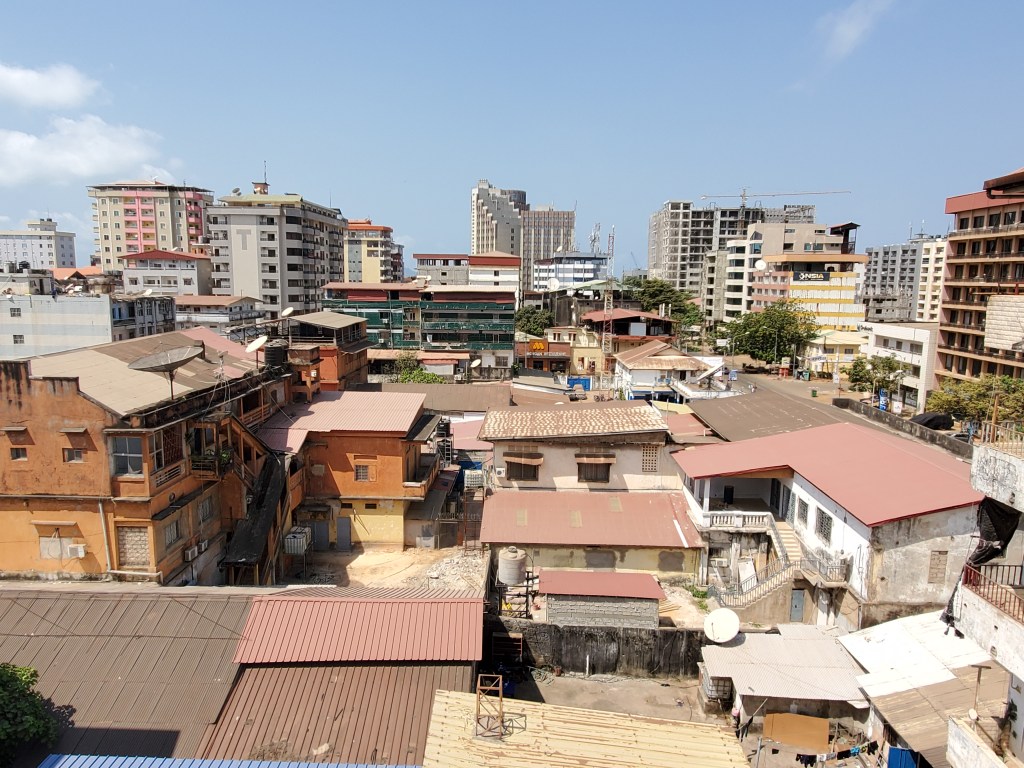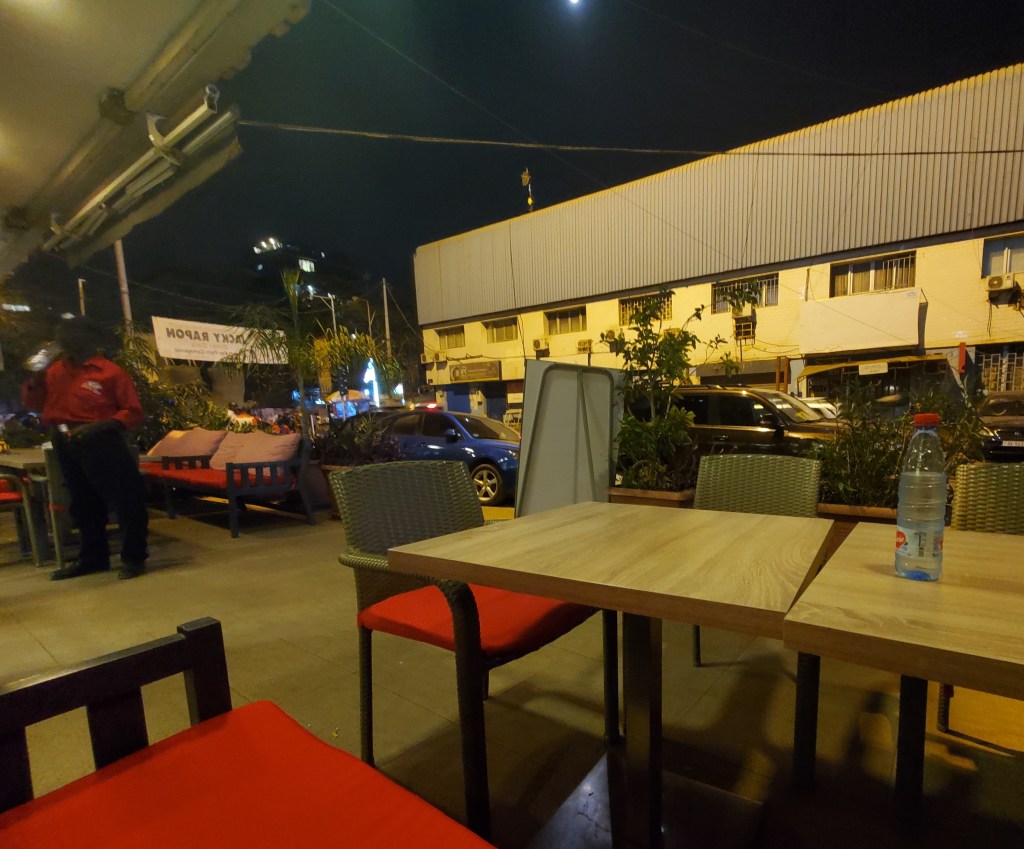My friends and family,
The next morning, I return early to the hospital to meet the head of the department of neurology. The “professor,” as they call him here, is my Principle Investigator’s research contact with whom she has been collaborating for several years. Until now, he has been a silent name on an email chain. I arrive at his office to find him mid-meeting, which he promptly stops. He greets me warmly and I get the feeling that I am not intruding. I introduce myself, although it is almost unnecessary as he knows who I am immediately. In his freshly pressed white-coat and stainless white button-down shirt, he presents as charming and taller than he actually is. I feel under-dressed in the same jeans and shirt I’ve been wearing for the past five days.

He switches effortlessly between English and French, and in the latter has this way of articulating things twice so that I may better understand. He shows me around his wing of the hospital and it seems that everyone knows him, patients and staff alike vying for a moment of his attention; I see he is a man of status here. He shows me to another room, stating, “this is my clinical office, and I would like you to have it while you are here.” I start to speak a small word of protest which he brushes aside – “there are many offices here” – and I understand I am his honored guest. He soon asks about my baggage, and when I allude to the trouble I’ve been having, his demeanor changes. He takes out his cell phone and makes two calls: first, to a contact at the airport to whom he speaks in rapid French, then a second one to his driver, who arrives within minutes to shuttle me to the airport. We part and the driver escorts me outside to a pristine white Toyota Land Rover, the newest and most polished car that I’ve yet seen in the country. The driver is younger and shorter than me and has that stoic air about him particular to men of few words. As I climb into the passenger seat beside him, I notice the crowd bustling outside the hospital is watching.
The ride from the airport took 30 minutes at night, but during the day, it takes more than 90. Sitting behind the Land Rover’s tinted windows gives me the first opportunity I’ve had to freely observe. Through the dusty, pot-holed roads with beat-up cars and countless motorcycles, I witness the life here spilling into the streets. We weave our way through merchants pushing carts or carrying large baskets on their heads, passing adjoining houses that seem strung together with patchworks of materials. Each time a stopped car obstructs our way, the driver rolls down the window, slowing as we pass, and yells something at the other car in one of the local dialects. As we head north toward the airport along the eastern coast of the city, we pass a community of tents on a shore that seems to have more garbage than sand; watching those people and children shuffle about, I wonder what their lives must be like; I wonder what foul substances are embedded in those sands. Occasionally we pass close enough to a pedestrian for them to see inside the car and I notice them gazing with a curiosity that asks who this foreigner could be.

When we reach the airport, we are greeted by a man who I realize answered the professor’s first call. Through a phone application he tells me that I will need to show the professor’s letter, passport, and baggage checks, and then escorts me in reverse through the security checkpoints. Each guard greets us coolly before this man convinces them of our purpose and when they slip into a relaxed familiarity, things seem to be going okay. We arrive at the customs office, where there is a group of men in uniforms that look almost military sitting around watching tv. They exchange rapid French and I catch glimpses of the conversation, realizing that they are wondering aloud why I am here. I assert that I understand and offer my purpose and one of them eyes me differently, suddenly seeming interested. I show my paperwork before he escorts my companions and I to a roped-off area where there is a graveyard of bags stranded in transit purgatory. My heart leaps as I spot the two bags that came with me – one full of antiepileptic medications and lumbar puncture kits, the other with all my own belongings but also the remainder of the antiepileptics.
As I claim my bags, I feel tension leaving my body. Things are going to be okay. The man from customs escorts us back to a baggage scanner and together we lift my oversized bags onto the belt. The bags clear and there is a moment when I have them in either hand and we are walking towards the exit – then a stern-looking man in a uniform arrives to obstruct our way. He says something in a commanding voice and the atmosphere changes suddenly. I understand enough to know that something is wrong. One of the men with me takes out a cell phone and makes several calls. He tells me he is speaking with the Secretary of Health. For the next 15 minutes, I watch as the bags slip through my fingers as not once does that uniformed man show the faintest trace of a smile. Things are not going well. I’m told that we will be unable to leave the airport with my bags because the letter with me is in English and there is no one here who can read it. Even as I ask if I can just bring my clothes and leave the medical supplies I know the answer will be no. My companions escort me back to the white Land Rover empty-handed.
My Principle Investigator has made this trip half-a-dozen times, always with medical supplies and antiepileptic medications; yet when my baggage arrived after me and came to customs, it must have been subjected to some additional level of scrutiny or some uniformed man who decided to put up a barricade. The driver and I fight through 90 minutes of traffic back to my hotel. I contact my Principle Investigator, who is troubled and reaches out to her contacts as she tries to arrange more paperwork. I just want to change my underwear.
Later that afternoon, our contact at the airport messages me to inform he’s heading my way with my baggage. My heart leaps again. Yet when he arrives, it’s without the bag of medical supplies, and I can tell by the weight of my other bag that things have been taken. In my room I find they have confiscated not only the remainder of the antiepileptics but also my personal medications, adapters to charge my electronics, and contact lenses. The small victory of having my clothes back feels embittered. Another 24 hours pass without word of the remainder of my luggage.

Finally, I reach out to the American Embassy. A man with a heavy accent takes my call, collects some information, and then tells me I will be called back. Over the following hours I receive a series of phone calls. Each time a new voice on the other line speaks with less of an accent and I get the impression that my situation is escalating, culminating with a woman who speaks fluent English with the authority of a supervisor. She tells me they will reach out to me tomorrow.
The following day, after several hours of phone calls from the American staff at the airport, a new black SUV delivers my medications and the electronic adapters directly to my hotel. The contacts have gone missing but now that I can take my anti-malarials and charge my electronics I barely care. The medical supplies will be sorted out, they tell me, and as they drive away, I know this is the closest I will come to a victory. In that moment, I have never been as grateful for the American staff working overseas to ensure the security and well-being of their fellow citizens.
The next day, I return to the hospital wearing for the first time a clean pair of scrubs, finally in possession of my stethoscope and medical books, feeling ready to do the work I came here to do.
Until next time, I will remain safe and well.
-Le Gringo
///
